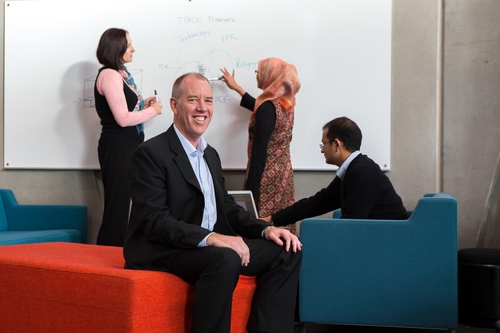Claudia Doman
13 January 2015: Making maths more engaging for female disadvantaged high-school students in Indonesia is the aim of a multi-million dollar project by the University of Canberra, in collaboration with Indonesian education leaders.
The three-year project, led by University of Canberra Centenary Professor Thomas Lowrie is focused on promoting mathematics engagement and learning opportunities for underprivileged communities in West Nusa Tenggara (NTB), Indonesia.
Professor Lowrie and his research team have been awarded a $2.6 million grant from the Department of Foreign Affairs and Trade's Government Partnerships for Development (GPFD) scheme to improve the quality of teaching and learning in mathematics classrooms in NTB, the country's second most disadvantaged province.
The funding scheme is an extremely competitive program to support economic growth and poverty alleviation in developing countries in the Indian Ocean, Asia and Pacific Regions.
Under the grant, Professor Lowrie's team has won $1,991,902 in cash and $700,000 in-kind to run the project.

|
UC Centenary Professor Tom Lowrie and his team will work in the $2.6m project to promote mathematics engagement and learning opportunities in Indonesia. Photo: Katherine Griffiths. |
"We will work closely with Indonesian teachers to design authentic mathematics learning activities that will have a strong application appropriate for the context of NTB," Professor Lowrie said. "The ultimate goal is for teachers to really engage Year 7-9 students, particularly girls, in maths learning through their personal lives, further education or career aspirations."
In collaboration with local government, education institutions and teachers, the project will include the development of modules which will be made up of contextualised lessons, which will then be implemented in classrooms and a professional development program in Australia for leading teachers.
"We will be looking to especially empower and champion female teachers as leaders of mathematics in their school and community," Professor Lowrie said. "We also aim to provide new opportunities for female students to engage actively with mathematics and numeracy involving necessary life skills."


